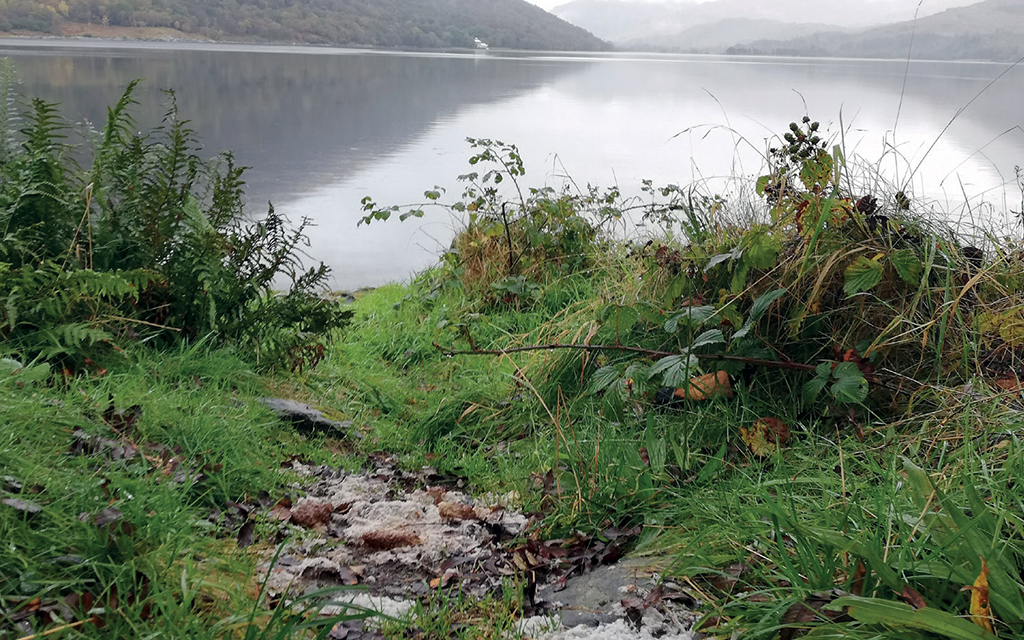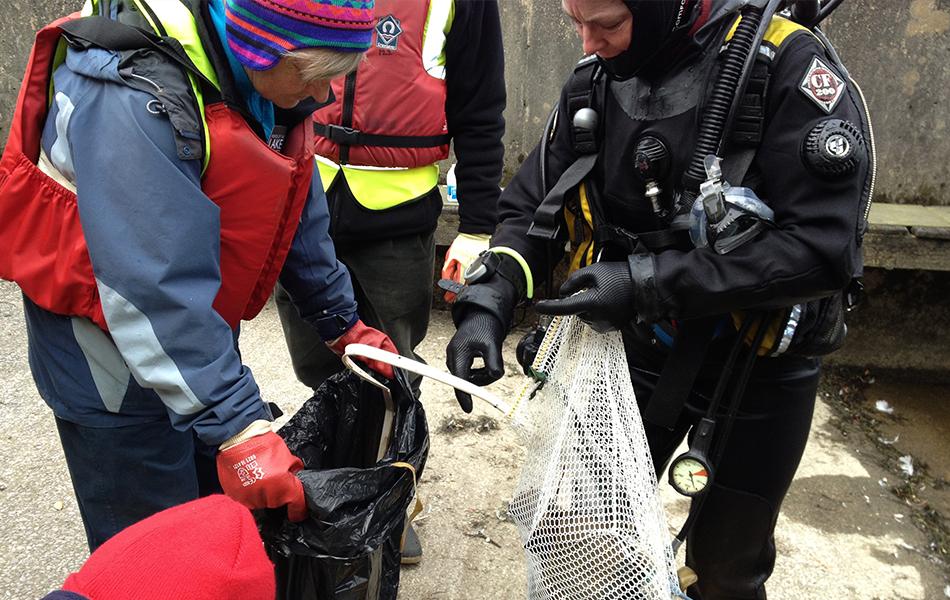
With UK sewage discharge scandals dominating the news, Kerry MacKay has some tips for divers to stay clear of unwelcome muck.
None of us want to swim in sewage. Unfortunately, many of us are facing this prospect or may have already done so unwittingly. Here are some key facts and tips to keep yourself safe.
Sewage pollution has been making a big splash in the news this year. It’s an ongoing problem that has been exacerbated by the government’s failure to improve regulations when they had the chance with the Water Quality (Sewage Discharge) Bill they debated earlier this year.
Water Companies paid out £965 million in shareholder dividends in 2022 rather than investing in better sewage management
Frustratingly, our wastewater infrastructure is grossly inadequate, underfunded, and poorly regulated. Not to mention the scandalous fact that Water Companies paid out £965 million in shareholder dividends in 2022 rather than investing in better sewage management.
Sewage is everything we flush down the toilet or wash down the drain. It becomes pollution when it is released into the environment through sewer overflows or washes off the land and roads. Water companies are only legally permitted to use overflows to discharge untreated sewage in extreme weather events. A restriction often conveniently overlooked by water companies, regulators, and successive governments.
Huge volumes of contaminated effluent and run-off mean the UK is ranked last in Europe for bathing water quality. Sewage was dumped into designated bathing water over 5,000 times during the 2022 bathing season (15 May to 30 September).
This sewage pollution damages our beloved ocean ecosystems. Of particular interest to us divers are our kelp beds and seagrasses. Sewage pollution reduces the biodiversity we can enjoy seeing in these special habitats. Sewage pollution also reduces the ocean’s ability to store carbon, a particularly important ecosystem service these habitats provide in efforts to manage climate change.
A report by the European Centre for Environment and Human Health (ECEHH) highlighted that sea bathers in the UK remain just as likely to become ill from seawater as they were in the 1990s. Health risks can range from stomach upsets and ear and eye infections, to more serious issues like Hepatitis, lung infections and E.coli.
Here are a few tips to help you stay safe and well when diving:
- Check your planned dive site for a sewage pollution alert. Surfers Against Sewage have a handy app you can download with a map of alerts. Look for “Safer Seas & Rivers Service” (SSRC) for Apple and Android. You can also find it online
- Try not to get any water in your mouth, eyes or nose. Easier said than done, I know! Try putting your regulator in your mouth before it touches the water. Ensure you have a good-fitting mask that doesn’t leak. Avoid doing mask-clearing and reg retrieval drills if you suspect the water is contaminated.
- Bring a bottle of safe tap water from home. Use this to rinse your mask before diving. Rinse all mouthpieces and your mask between dives. Give your face, hands and ears a good rinse after each dive.
- Thoroughly rinse and dry all equipment after your day’s diving.
- If you are concerned or think you regularly come into contact with sewage-polluted water, get vaccinated against Hepatitis A.
- Campaign for better regulation. The easiest way to do this is to follow a group like Surfers Against Sewage and sign relevant petitions. Check them out at www.sas.org.uk
If you are unfortunate enough to get ill after a dive please complete a BSAC Incident/Accident Report Form at bsac.com/incidentform. This will help BSAC build a picture as to how sewage pollution may be impacting divers’ health.
Please also submit a sickness report to Surfers Against Sewage. This helps SAS provide evidence for how important an issue sewage pollution is. If you spot sewage pollution be sure to report it to the Environment Agency.
I hope this advice helps you avoid some nasty consequences if you are unlucky enough to plan a dive near a sewage outflow. Safe diving!
Article by Kerry MacKay first published in SCUBA magazine, Issue 139 October 2023.

 Author: Kerry MacKay | Posted 24 Oct 2023
Author: Kerry MacKay | Posted 24 Oct 2023



